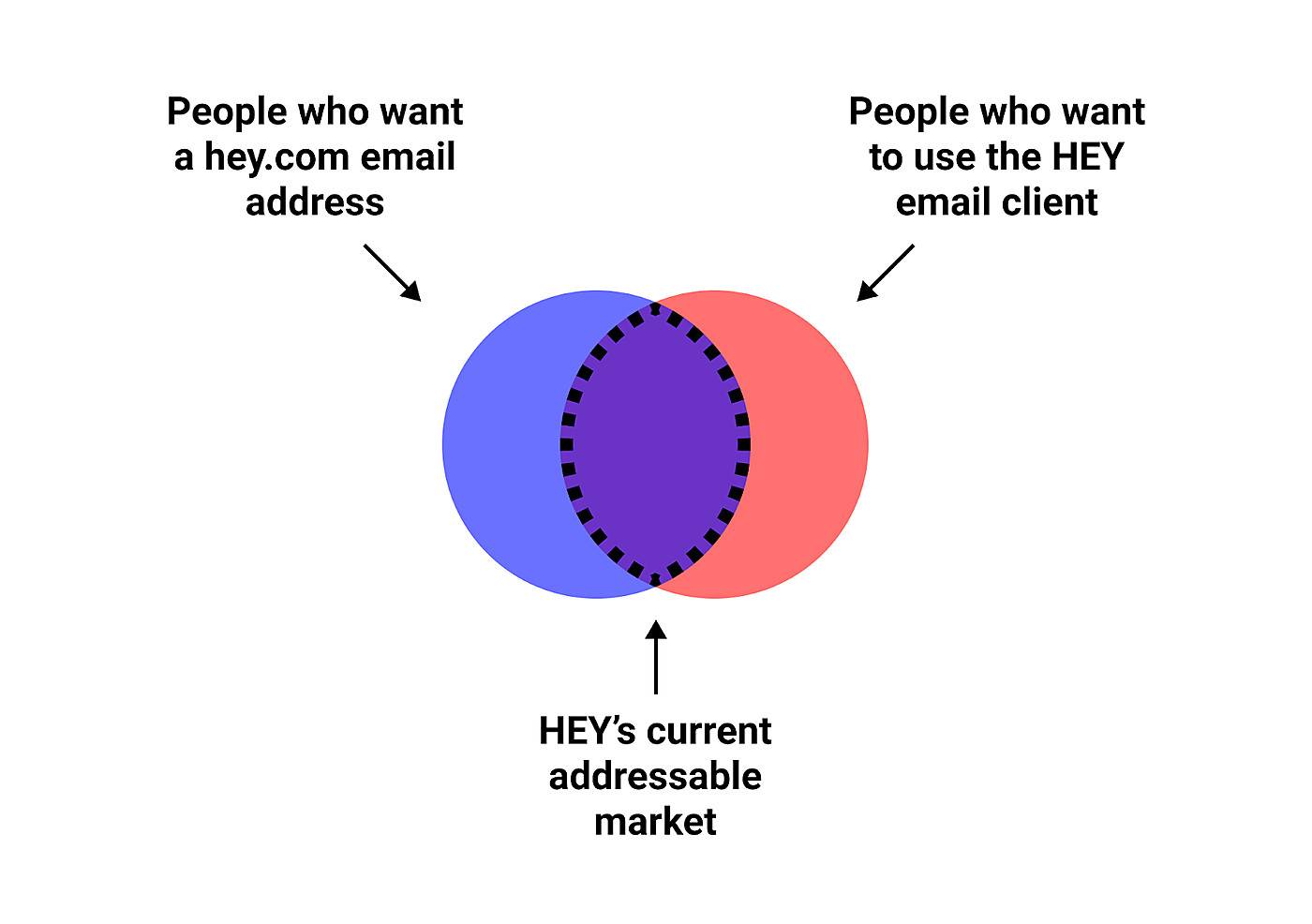
The Boy Who Cried Unicorn
Rating my predictions from 2020: what worked, what didn’t, and what I learned along the way
April 26, 2023
Sponsored By: LeverTRM
Empower Your Recruitment and Hiring with LeverTRM, our sponsor for today's essay.
Business analysis is fundamentally about predicting things. You have a model of the world, you feed current events into it—product launches, acquisitions, financings, etc.—and then you come up with a prediction of what will happen next.
When I first started writing Divinations, I did not realize this. I thought I was going to write about the timeless principles of business strategy, like trade-offs, wedges, and value chains. Turns out, these ideas are not worth much in a vacuum. The only way to make them come alive is by contact with reality. Only by attempting to use an idea can you truly understand it.
So, without really intending to, I’ve ended up making a lot of predictions over the past few years. Some were complete whiffs (I once claimed Quibi would be a multibillion-dollar company) and others were pretty spot-on (in the peak of Roam’s hype cycle, I said it would likely fail unless it got usage within teams).
I’ve never taken a step back and graded my predictions, but now that enough time has passed, I thought it might be fun to do just that. So this week’s post is pretty simple: I’ll grade five predictions I made in 2020 and see what we can learn from them.
1. Quibi will be a multibillion-dollar company (F)
It’s hard to be more wrong than this. The day Quibi launched, I wrote an article claiming that short-form premium video was here to stay. At the time this was totally against the conventional wisdom. Everybody thought Quibi would fail. Turns out, they were right.
Looking back, I think there were two big reasons I got this wrong.
The first is that it was relatively early in my writing career, and I was a bit eager to assert a bold contrarian claim. It was the first article in which I made a big prediction. After spending a few months writing explainers of classic business strategy ideas from thinkers like Michael Porter and Clay Christensen, I was ready to put those ideas to use. I was excited about the idea of being the lone voice who “called it” when everyone else had doubt. I should have been more patient.
The second reason I got this wrong: I was too excited about the product idea in theory, but didn’t reserve judgment until I had more experience actually using it firsthand. I thought it would be a good idea to post my prediction of its success on launch day to maximize attention to the article. The downside of this—I had to write the article without actually trying the product. I should have waited to form an opinion.
In theory, Hollywood-produced content packaged into 10-minute episodes sounded great. I thought this would be able to compete with Instagram, TikTok, and YouTube. When I sit on my couch at night to watch TV, I almost always choose premium content rather than user-generated content. Not everyone is like me in this regard, but a lot of people are. Therefore, if Hollywood decided to make shorter content, wouldn’t I prioritize watching that on my phone instead of scrolling social media?
What I didn’t realize is that the tricks Hollywood uses to keep us hooked only work when viewers have uninterrupted time to engage with the material. Plot and character-driven stories require focus from the audience. In contrast, a funny joke or cool dance on TikTok is easy to consume and understand on the go, whether you’re standing in line for the bathroom or waiting for co-workers to log on to Zoom. I was comparing apples with oranges!
Lesson learned: Actually use products before you make predictions about them.
LeverTRM is a cloud-based Talent Relationship Management platform that offers ATS+CRM functionality in one, making it easy for companies to manage candidate relationships and streamline their recruitment and hiring process. With a powerful automation hub, LeverTRM takes care of everyday tasks, freeing up time for recruiters to focus on finding the best-fit talent for their company.
2. Notion’s $2B valuation in 2020 is sensible (B-)
Notion raised a Series B in 2020 at a $2B valuation, and at the time a lot of people thought it was a wildly high price to pay for a relatively young SaaS company. So I decided to do a little napkin math and see what kind of revenue multiple that might represent. I then compared it with public companies to see just how crazy it was.
I give myself a B- on this for three reasons:
- It really was a sensible valuation at the time if you benchmarked it against public SaaS companies.
- Notion raised a Series C a year later at a $10B valuation, so on paper the earlier Series B investors have already made a 5x return.
- On the other hand, in 2020, it was in retrospect a very risky idea to use public SaaS valuations as the benchmark of sensibility. As we all know now, valuations were way above historical norms, and came crashing down a few years later.
These days, Notion is probably in the same bucket as most of its peers who raised at huge valuations in 2021, and is struggling to grow into their $10B valuation. But I bet they comfortably clear the $2B bar. I think they will likely have staying power as a business and end up being a good investment for those Series B investors. That said, I should have been more aware of just how far out of whack public comps can be.
Lesson learned: Pay more attention to where we are in the market cycle.
3. HEY won’t be huge (A)
In 2020 Basecamp launched an email service called HEY, which bundled two things:
- An email service provider (you get an @hey.com email address)
- An “opinionated” email app with a new workflow for doing your email
I argued that HEY would be bigger if it unbundled these two things, because the group of people who want to use an alternative email service provider and those who want a new way to manage their email are two imperfectly overlapping circles. By forcing people to adopt both, it would be limiting their market to the intersection of those two circles:
Basecamp hasn’t publicly released any stats about HEY customer acquisition or growth rate. In the Every email list, the proportion of signups coming from “@hey.com" addresses is tiny. And it’s only getting smaller after the initial spike when they launched in 2020. Of course this is not scientific, but if anything, HEY should be overrepresented in our audience, since we focus on tech.
The solution for HEY: Build an integration with Gmail and/or Outlook so people can stick with their preferred email provider while still using HEY’s email management app. For ideological reasons—which I do respect—Basecamp will not do this. It’s against Google and Microsoft’s privacy stances, so Basecamp would rather build its own email service than integrate with its competitors.
I give this prediction an A, not just because I was right, but because it was based on a very simple yet non-obvious principle: The Venn diagram idea. I’m proud of it!
Lesson learned: find the simplest governing principle that determines the behavior of a system, and base your analysis on that.
4. Apple is building an OS for health (C+)
This article, which basically predicted that Apple was becoming an aggregator for health data, was a big hit for me at the time, but the prediction has not aged well. (At least so far.)
In a nutshell, I thought Apple would use the Health app to collect data from an ever-growing variety of health sensors like mattresses, wristbands, exercise bikes, and more. The app would then combine it all together to form one holistic picture of your health, which could be shared with all sorts of healthcare providers—doctors, personal trainers, nutritionists, etc.
Now, three years later, I have to conclude that either Apple is not building toward the vision I thought it would be, or it is much slower than I expected. Either way I was wrong. Much of what I thought it would build has not yet come to fruition.
Lesson learned: It’s easy to get excited about a vision you have for a company’s future, but exercise caution when claiming your hypothesis is fact. The company is probably building toward something else.
5. Roam won’t be huge (A)
Once upon a time, my entire Twitter feed was obsessed with Roam. Shortly after the pandemic started, all anyone wanted to do was read things on the internet and take notes about them. Essential workers aside, many of us were trapped at home with little to pass the time.
Roam’s idea was to build a way to make your notes more reusable by structuring them as a bunch of independent bullet points that could be referenced, embedded, and linked to any other note. It’s hard to understand at first, but it does tend to produce a fairly profound aha moment when someone gets it. It seduces you with the idea of never forgetting anything.
Somewhere during the Peak Roam era, the company raised money at a $200 million valuation. I wrote about the challenges it would have to overcome to grow into that valuation, and expressed skepticism that it’d be able to do it, even though I was rooting for Roam. Now, three years later, it seems clear that I was right.
The problem I articulated back then: Roam needed to build a network effect to avoid commoditization—the most obvious route being team/workplace adoption. I argued the best way to do it was by making the core experience simpler and more obvious to use. I theorized that any given team of 10 people would have only one or two folks who would be willing to learn a tool like Roam. It was just too intense and niche of a paradigm to appeal to the average person. I don’t think this is a controversial statement—Roam prided itself on being a power-user product that was only suitable for those who could be fully committed to the Roam way! (Remember #roamcult?)
Unfortunately, one of the hardest problems to solve in business is when the ideological commitments of the founders run contrary to the pragmatic necessities of growth. In these circumstances, ideology and identity usually win, to the detriment of the business.
Roam so far has not meaningfully simplified the product or built an enterprise business. In general, the category of “networked thought” products seems to have stalled, and cheaper/simpler alternatives like Obsidian have gained market share, as predicted. Also, it seems likely that LLMs, like OpenAI’s GPT-4, will transform the entire category.
I give myself an A on this one!
Lesson learned: Pay attention to the core ideology that motivates founders. They will not stray far from it, for better or worse.
Lessons learned along the way
So, taking a step back, what can we learn from all these predictions?
The main thing that stands out to me: It’s much easier to predict failure than success. Most experiments fail, sadly.
I made negative predictions about HEY and Roam, and I was more or less right about both. On the other hand, I made positive predictions about Quibi, Notion, and Apple’s health app, and of those three I only felt good about Notion. Quibi died a quick death, and Apple’s health app has not come close to what I expected. This is a bummer, because it’s not fun to write about why someone’s dream didn’t work.
If I were a VC, this would be fine, because my job would require finding just a few big winners. It wouldn’t matter if I was wrong most of the time.
But as a writer, it’s unrealistic to look at nascent possibilities and get excited about them, pondering what would happen if everything went right. This would be fun, but it would burn readers’ trust quickly. You can only say “THIS IS THE NEXT BIG THING” for so many weeks in a row before people start to doubt you. Nobody wants to be the boy who cried unicorn.
Find Out What
Comes Next in Tech.
Start your free trial.
New ideas to help you build the future—in your inbox, every day. Trusted by over 75,000 readers.
SubscribeAlready have an account? Sign in
What's included?
-
Unlimited access to our daily essays by Dan Shipper, Evan Armstrong, and a roster of the best tech writers on the internet
-
Full access to an archive of hundreds of in-depth articles
-
-
Priority access and subscriber-only discounts to courses, events, and more
-
Ad-free experience
-
Access to our Discord community
Thanks to our Sponsor: LeverTRM
Thanks again to Lever TRM, our sponsor for today. LeverTRM is known for its innovative, candidate-centric approach to recruitment and hiring. Book your demo today and see how Lever can transform your recruitment process, enhance your team's reach, insight, and proactivity, and help you connect with top talent.



Comments
Don't have an account? Sign up!